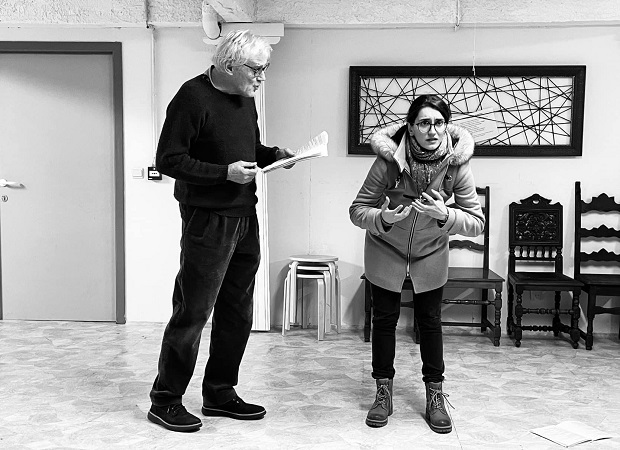- Daily & Weekly newsletters
- Buy & download The Bulletin
- Comment on our articles
Brussels Shakespeare Society presents new version of The Tempest, set in 2033
The Brussels Shakespeare Society looks to the future and a world struggling with climate crisis in its production of The Tempest at Jacque Franck cultural centre in Saint-Gilles, from 7 to 11 March.
Reflecting the need for sustainability, the local amateur dramatic company has entirely recycled the play’s sets and costumes with the help of a team of creative volunteers.
It chose to set the Shakespeare classic 10 years in the future so that audiences would not be required to over stretch their imagination when considering the challenges of climate change. Hence the significance of the year 2033; one year after the crucial milestone of containing rising temperatures within the 1.5°C goal.
“Recycle and re-use are our core ways of life, with the fight against all that is a threat to our democratic values, including power abuse and disinformation, at the forefront,” says the BSS on its decision to address the environment head-on in its latest production.
The Tempest lends itself to such treatment as a story of political unrest and an unsettled climate. After a troubled storm, a family struggle to survive on a strange island. When their long-lost enemies appear on the horizon amid a ferocious sea, conciliation is called for.
Director Esther Pozo Vera chose to stage the timeless piece in a period that mirrors what is currently happening in the real world. “The most significant challenge to our species is climate change, yet we seem to be consumed by culture wars, irregular political management and hatred. This hatred is against those who do not fall within traditional moulds.”

The play tackles race, religion, sexual and gender discrimination (the most telling example being the character Caliban), as well as raising awareness about vulnerable people in society and subject to slavery (Ariel as well as Caliban).
Therese Van Elst, who plays the role of Caliban, says: “The importance of addressing themes of exploitation allows us to really think about our own world. It makes us look at ourselves and understand how to deal with it in a healthy way.”
Protagonist Prospero represents the old-world order that’s resistant to change. He continues trying to use technology and science to dominate nature, as opposed to living in harmony with nature, and more importantly, letting go of past family resentments.
It’s very much a play about power: how (not) to exert it, but also the effect it has on those who are manipulated by that power. The Tempest, first performed in 1611, raises family issues, highlighting how complicated relationships can be. From sibling rivalry to generational rifts, these are timeless themes about heartache, love and restless souls that continue to resonate.
The Tempest
7-10 March 20.00; 11 March 14.00 & 20.00
Centre Culturel Jacques Franck
Chaussée de Waterloo 94
Saint-Gilles
Photos: The Brussels Shakespeare Society rehearsing The Tempest



















